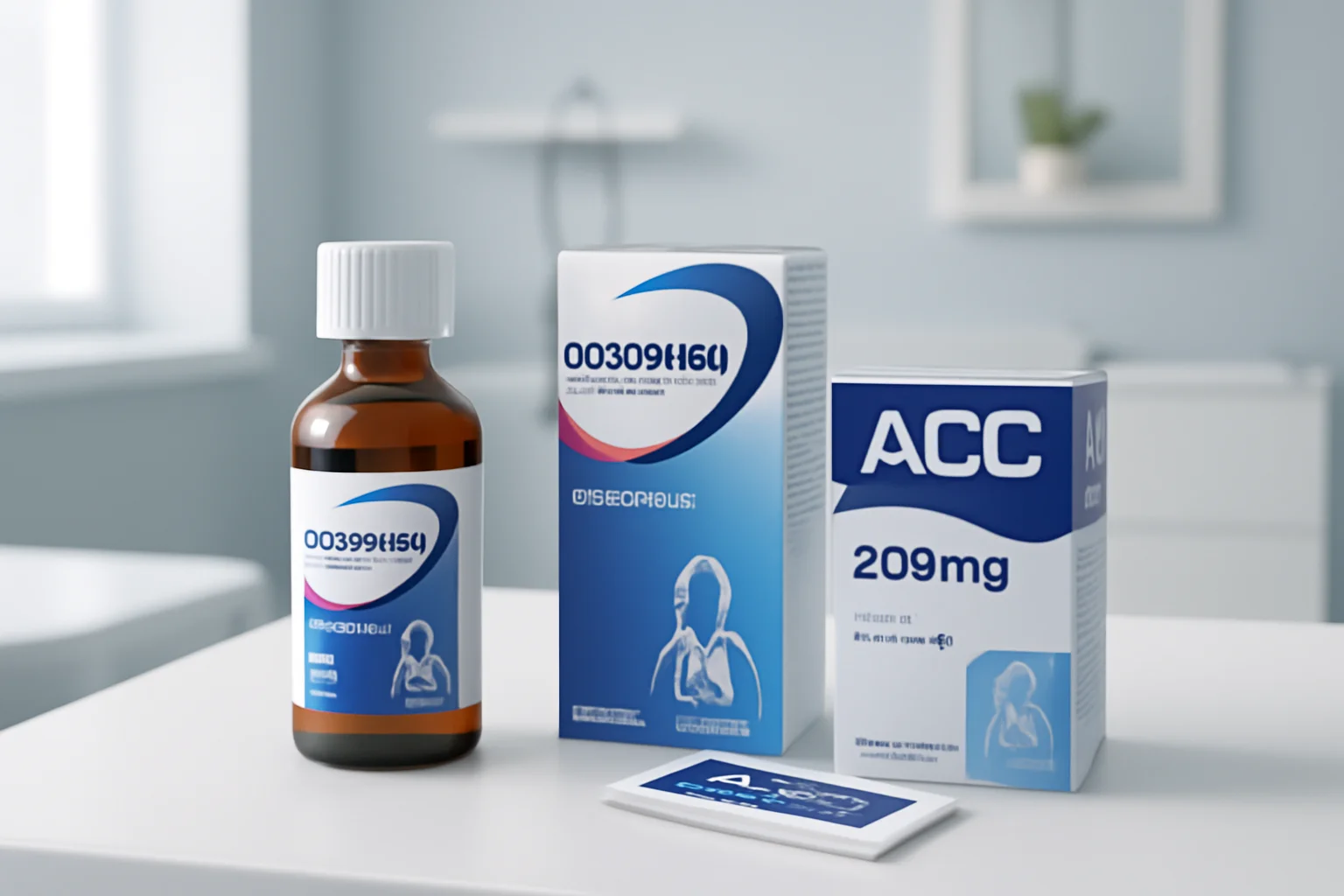
Mucosolvan or ACC: Which is the Better Choice for Cough Relief?
The most well-known medications for treating cough and respiratory complaints include Mucosolvan and ACC (acetylcysteine). These preparations can assist in mucus thinning, clearing the airways, and alleviating cough, but many people wonder which is more effective or which is the more appropriate choice for treating different symptoms. The decision is not always straightforward, as both medications have their own advantages and disadvantages.
Mucosolvan contains ambroxol, which thins mucus and aids in the expulsion of phlegm. In contrast, ACC contains acetylcysteine, which also plays an important role in mucus thinning but also has antioxidant properties. Due to the different mechanisms of action, one medication may be more advantageous than the other in various cases, complicating the decision for patients.
In this article, we will examine the characteristics, effects, applications, and possible side effects of Mucosolvan and ACC in detail. With this information, patients can make a more informed decision about what is best for them, whether it concerns cough, respiratory illnesses, or other respiratory issues.
Mucosolvan: Mechanism of Action and Application
Mucosolvan, with its active ingredient ambroxol, is a popular choice for treating cough and respiratory diseases. Ambroxol is a mucolytic agent that can reduce the viscosity of mucus in the airways, thus facilitating its expulsion. The effects of the medication are felt quickly, and patients may notice improvement relatively shortly after starting treatment.
Mucosolvan has numerous applications. It is particularly effective in cases of chronic bronchitis, asthma, pneumonia, and other respiratory illnesses. Taking the medication can help reduce coughing, as the thinned mucus is expelled more easily, leading to clearer airway function.
The preparation is available in various forms: syrup, tablet, or inhalation solution. This allows patients to use the medication in the manner that is most suitable for them. However, it is important to consult a doctor before using Mucosolvan, especially if one suffers from any chronic illness or is taking other medications.
Although Mucosolvan is generally well tolerated, like all medications, it may have side effects. The most common include nausea, dizziness, or diarrhea. These symptoms are usually mild, but if a patient experiences any unusual reactions, it is important to consult a doctor immediately.
ACC: Mechanism of Action and Application
ACC, or acetylcysteine, is also a widely used mucolytic agent commonly prescribed for treating respiratory illnesses. The uniqueness of acetylcysteine lies in its antioxidant effect, meaning it can reduce the harmful effects of free radicals in the body. This function can be particularly important in treating chronic respiratory diseases where inflammatory processes play a role.
The mechanism of action of ACC focuses on thinning mucus and clearing the airways. The medication reduces the viscosity of mucus, making it easier to expel phlegm. Additionally, since acetylcysteine is an antioxidant, it can help reduce inflammation in the airways, thereby contributing to the alleviation of respiratory complaints.
ACC is available in various forms, such as effervescent tablets, powder, or solution, which also allows for wide-ranging applications. ACC is often recommended for colds, influenza, or other respiratory illnesses where cough and mucus problems are common.
In terms of side effects, ACC is also relatively well tolerated, but minor gastrointestinal complaints, such as nausea or diarrhea, may occur. Allergic reactions, such as skin rashes or itching, are also possible, but these are less common.
Which is the Better Choice: Mucosolvan or ACC?
Choosing between Mucosolvan and ACC is not always straightforward, as both medications have their place in treating respiratory diseases. The choice depends on the patient’s individual condition, the nature of the symptoms, and previous experiences.
If a patient is struggling with cough and thick, hard-to-remove secretions, using Mucosolvan may be more advantageous, as ambroxol effectively thins mucus and aids in expelling phlegm. Conversely, if a patient is dealing with respiratory inflammation where inflammatory processes are involved, the antioxidant effect of ACC may also be beneficial.
Patients taking Mucosolvan may report quicker improvement in terms of cough and mucus removal, while the effect of ACC focuses more on reducing inflammation. To achieve the best results, it is important for patients to consult their doctor before starting either medication.
It is also crucial to consider the possible side effects. Although both medications are generally well tolerated, patients should be aware that different reactions may occur. If any unusual symptoms arise, it is advisable to consult a doctor immediately.
Conclusion
Mucosolvan and ACC are effective medications for treating respiratory illnesses, each with its own advantages and disadvantages. When making a choice, it is important to consider the patient’s condition, the nature of the symptoms, and the mechanisms of action of the medications. It is always advisable to seek medical advice to find the most appropriate solution for treating respiratory complaints.
In case of health problems, it is always recommended to consult a doctor, as medications may not be suitable for every patient’s condition. The doctor can help make the best decision, taking into account the individual needs of the patient and the latest medical recommendations.
**Warning:** This article does not constitute medical advice. In case of health problems, please always follow your doctor’s advice!

